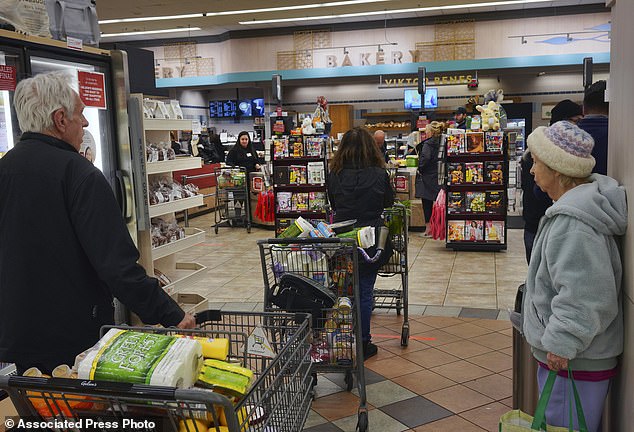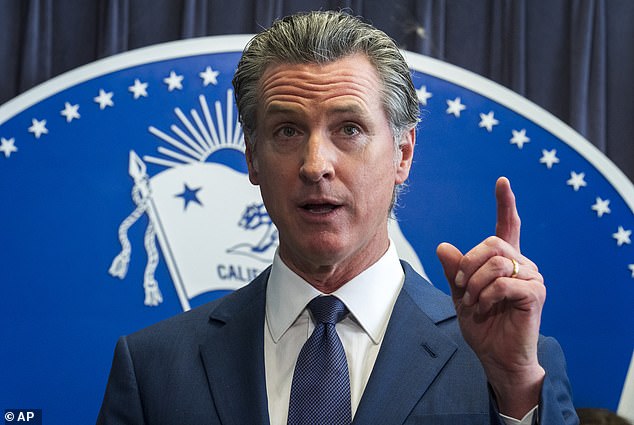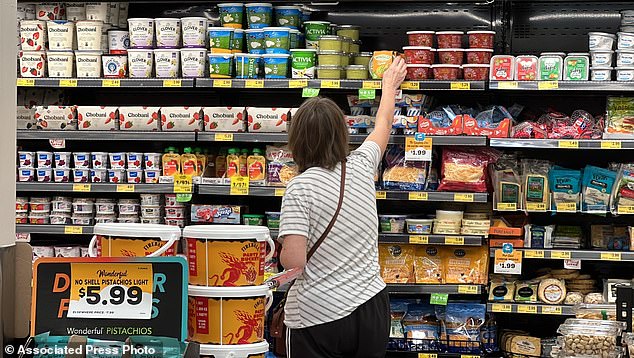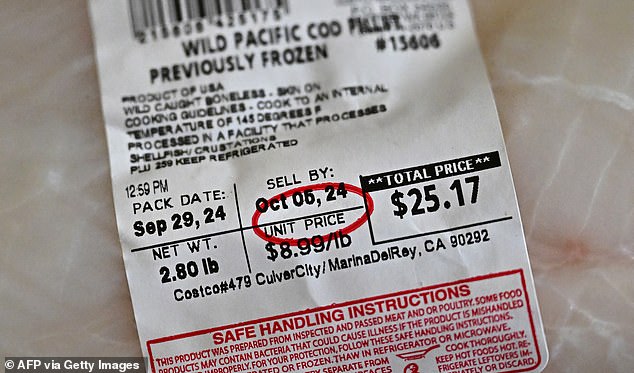California has become the first state to ban confusing “best before” labels on food in major supermarkets.
The legislation, pushed by Gov. Gavin Newsom over the weekend, aims to help consumers stop playing guessing games with the produce in their refrigerators.
Food labels that say “sell by” or “use by” do not have universal meaning under current laws.
There are more than 50 different date labels on packaged foods sold in stores across the United States, but the information is largely unregulated and unrelated to food safety.
Expiration dates, for example, often act as a guide for stores to remove products from shelves, rather than as an indicator of whether the product is still safe to consume.
Without federal regulations dictating what information these labels must include, this often leads to customer confusion and accounts for nearly 20 percent of the nation’s food waste, according to the Food and Drug Administration.
California has become the first state to ban confusing “best before” labels on food in major supermarkets.
In California alone, around six million tons of unexpired food are thrown away each year.
“Having to ask ourselves if our food is still good is an issue we’ve all struggled with,” said the bill’s author, Democratic Assembly member Jacqui Irwin.
The new law “is a monumental step to keep money in consumers’ pockets while helping the environment and the planet,” he added.
The new rules, which go into effect in July 2026, set a new standard for food labeling in the Golden State.
They will replace current labels with a “best if used by” label to indicate the highest quality of a product, and a “use by” label for product safety.
The law will establish an exemption for eggs, beer and other malt beverages.
It comes as similar efforts across the country remain stalled at the federal level.
Lawmakers and advocates in California said they have spent the last decade trying to pass legislation to reduce food labeling confusion and reduce food waste.
“Food waste rates aren’t going down, they’re going up,” said Erica Parker of Californians Against Waste, who sponsored the bill.
Supporters hope the legislation could pave the way for new food labeling standards across the country.
“California has such a large market share that we think this will give a boost to manufacturers,” said Nina Sevilla of the Natural Resources Defense Council, which also sponsored the bill.
“The hope is that California will serve as a model for other states or, ultimately, to drive action at the federal level.”
Shopper Jasmine Acosta, 23, told The Associated Press that she believes most people don’t understand the language currently used on food labels.
“It’s confusing for most consumers,” she said while shopping Tuesday at a Smart & Final store in Los Angeles.
He used to work at a small grocery store, so he developed the habit of examining the meat he buys for odors or discoloration before using the food, he said.
A sell-by date helps the grocer adhere to a first-in, first-out method for their products and prepare for the arrival of the next shipment, but it doesn’t mean the food has gone bad, according to Acosta.
While shopping Tuesday, he bought a package of meat that said “use or freeze,” a phrase he believes is relatively clear compared to other languages, but could still be confusing.

Shoppers line up to buy groceries at a Gelson supermarket on Friday, March 20, 2020, in the Sherman Oaks section of Los Angeles.

The new legislation, championed by Gov. Gavin Newsom over the weekend, aims to help consumers stop playing guessing games with the produce in their refrigerators.

A customer looks at refrigerated items at a Grocery Outlet store in Pleasanton, California.
“It would obviously help everyone to try to be on the same spectrum and ensure that consumers can use everything, or if not, it’s just a waste of money,” Acosta told the outlet.
It comes after Governor Newsom also banned plastic bags in California stores.
The change, which became law earlier this year, will take legal effect on January 1, 2026 and will affect all grocery stores.
Some grocery chains, like Whole Foods, have already phased out plastic bags at checkout nationwide.
Consumers will be encouraged to bring their own shopping bags and those who do not will be offered a paper alternative.
The new law will only affect plastic bags used at supermarket checkouts, not plastic bags containing agricultural products.


